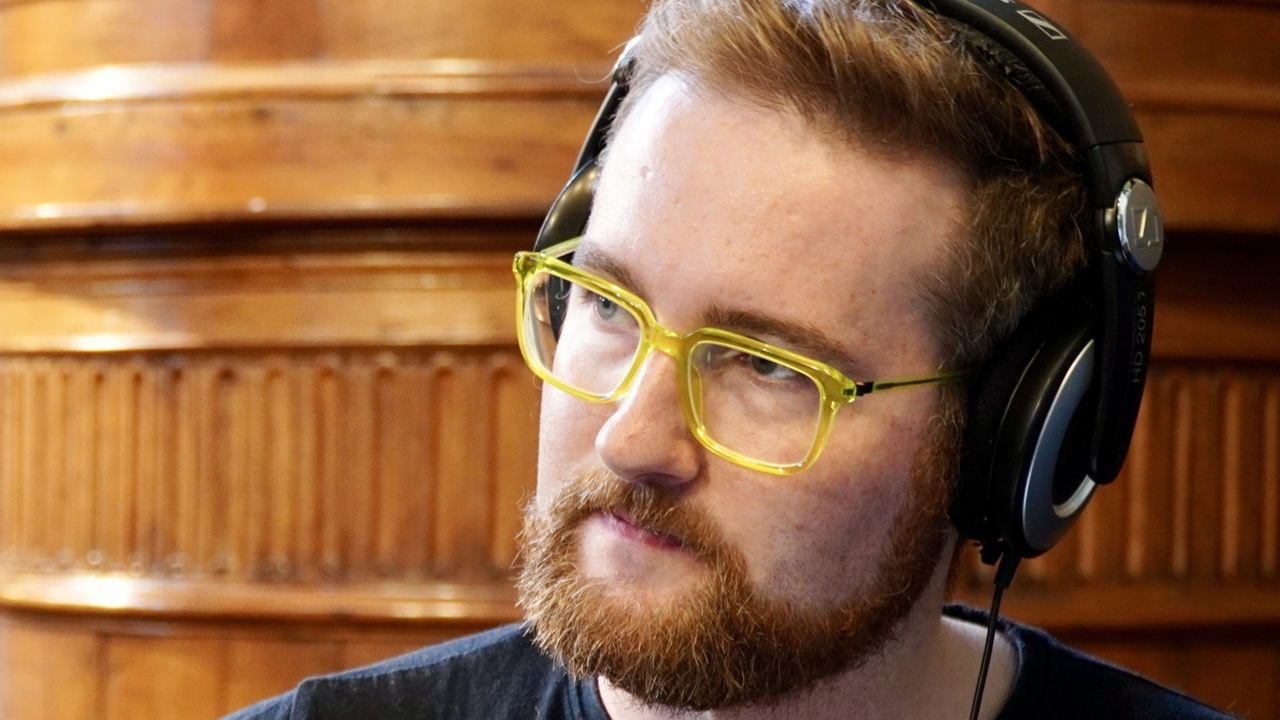Events and Tickets
Spotlight: Anselm McDonnell

It’s not every would-be rock guitarist who becomes a composer. But it’s the route the 2024 Séan Ó Riada Competition winner Anselm McDonnell took, his attempts to write attention-grabbing solos and riffs gradually pulling him towards composition. That, in turn, pushed open the door to classical music, ‘and from day one, I was hooked’.
In addition to the Ó Riada imprimatur, McDonnell has amassed awards and accolades enough to fill a generous trophy cabinet, and is now an in-demand composer whose multi-faceted music has been fêted at home, throughout Europe and as far afield as Russia, Thailand and China.
Still only 31, his output has already passed 100 pieces with more, including his first symphony, on the way. That prolific creativity is matched by an eclectic reach encompassing electronica, film, Rap music, collaborations with fashion designers, and much else besides every genre of classical music.
‘I try,’ he modestly comments, ‘to push myself to do lots of different kinds of projects.’ McDonnell’s eagerness to explore new sounds and new directions he credits to his rock band beginnings and his later studies with Piers Hellawell at Queen’s University, Belfast and Robert Fokkens at Cardiff University. ‘The band led me to explore extremes of expression and sound, combining noise and harmony. Piers and Robert, very different composers, were fantastic teachers who didn’t try to force me into their way of writing and encouraged me to develop my own voice.’
Just as meaningful has been his relationships with musicians, for one of whom, longtime collaborator Martin Johnson, he composed his first Cello Concerto, Hostile Summits. Commissioned by National Symphony Orchestra Ireland, who, with Martin Johnson, give its first performance, its title alludes to keen hiker McDonnell’s fascination with mountains and those who climb them – the ‘adrenaline junkies in pursuit of fear’ who first emerged in the Victorian era – imagined in the concerto’s first movement.
The concerto pits the cello as a lone climber silhouetted against the heavens-touching vastness of mountains, their forbidding majesty explored in a middle movement that ‘looks further back’ to when mountains were believed to be the homes of gods. It’s here McDonnell’s instinct to push towards extremes comes into play: ‘I take the cello right up into the top of its range – whisper sounds off the finger board – and half of the orchestra is removed to focus on the lower end of its voice’. The finale references the Biblical account of Jesus, newly Transfigured, descending from the heights to heal a sick child and reassure his disciples that faith can move mountains. There’s novelty, too, as the cello and string section combine ‘to mimic the sound of a giant guitar’.
As for what audiences can expect from Hostile Summits, McDonnell says: ‘There’s a huge amount of drama in it, some unusual uses of the orchestra, particularly in the percussion writing, interesting combinations between instruments and the way they pair with the guitar-like nature of the cello. I hope it will show a different aspect of what the cello can do’.
